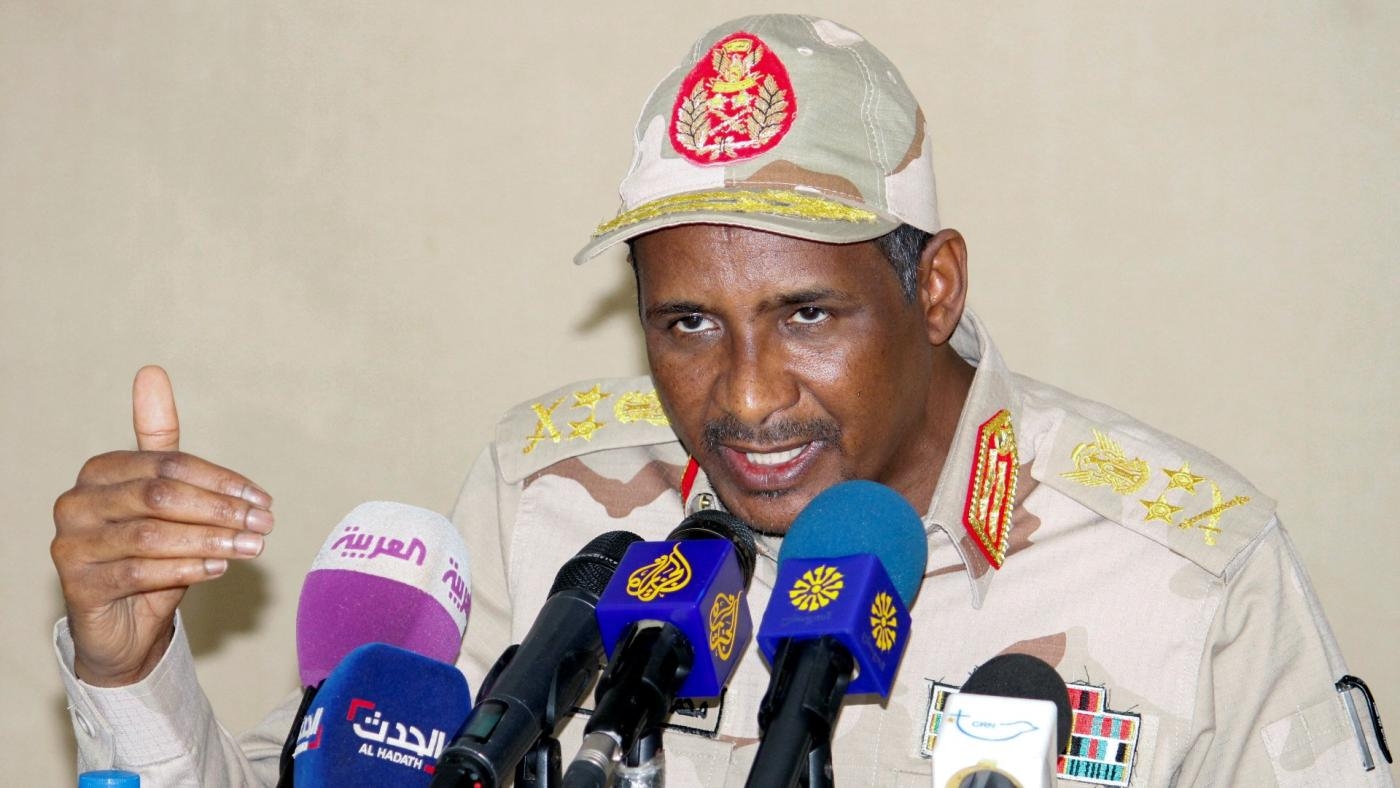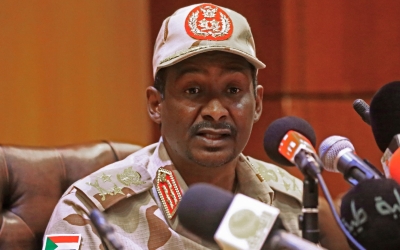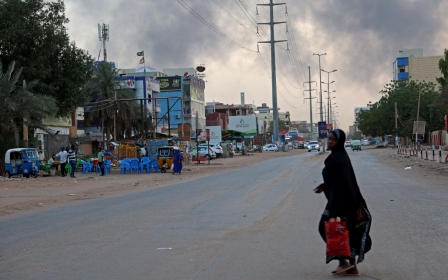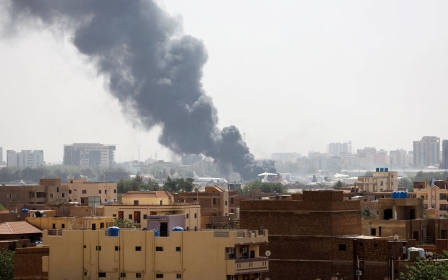Sudan turmoil: How the digital space is being used in the conflict

At least 900 potentially hijacked Twitter accounts are being used to retweet content posted by the head of the Rapid Support Force (RSF) in Sudan, according to new research.
The Digital Forensic Research Lab (DFRLab) at the Atlantic Council said the accounts were boosting statements by Mohamed Hamdan Dagalo the head of the RSF and deputy leader of Sudan’s ruling council, as part of an online propaganda war with their rivals the Sudanese Armed Forces (SAF).
The findings released on Tuesday show that in addition to the battle being fought with tanks and artillery in Sudan, there is also a battle to shape online narratives.
Much of the reported amplification occurred after the outbreak of violence on 15 April, with content echoing RSF narratives being promoted.
“The accounts followed a similar pattern: after remaining inactive for years, many became active again in December 2022, tweeting a string of characters lifted from Wikipedia pages, then boosting tweets from Hemeti and the RSF,” said the report, referring to Dagalo by his commonly used nickname Hemeti.
Many of the accounts that have been apparently hijacked also displayed evidence of having previously been operated by real users that now promote RSF narratives online.
Although they worked to promote the RSF and Hemeti, almost none of the 900 identified accounts followed either the RSF or Hemeti on Twitter, in a bid to hide their affiliation.
Popularity boost
The hijacked Twitter accounts are being used to make the RSF and Hemeti “appear more popular than they actually are on the platform by boosting their tweets and appealing to a more international audience via English-language tweets,” said the DFRLaB report.
As fighting between the RSF and the army entered its fifth day, the number of casualties and deaths shows no sign of abating.
The director-general of the UN's World Health Organisation, Tedros Ghebreyesus, said at least 270 people have been killed and more than 2,600 wounded since fighting began Saturday, without offering a breakdown of civilians and combatants killed.
Another important narrative being pushed by the accounts is that the “RSF responded to an attack initiated by the SAF and that al-Burhan is a radical Islamist".
This is not the first time that Hemeti has sought to improve his image.
In October 2021, the DFRLab reported on a Facebook network engaging in coordinated inauthentic behaviour to promote the RSF.
The network had links to Saudi Arabia and the United Arab Emirates (UAE) and was later removed by Facebook for “coordinated inauthentic behaviour on behalf of a foreign or government entity.”
Saudi Arabia and the UAE have long-standing relationships with Hemeti and the RSF.
Middle East Eye propose une couverture et une analyse indépendantes et incomparables du Moyen-Orient, de l’Afrique du Nord et d’autres régions du monde. Pour en savoir plus sur la reprise de ce contenu et les frais qui s’appliquent, veuillez remplir ce formulaire [en anglais]. Pour en savoir plus sur MEE, cliquez ici [en anglais].





